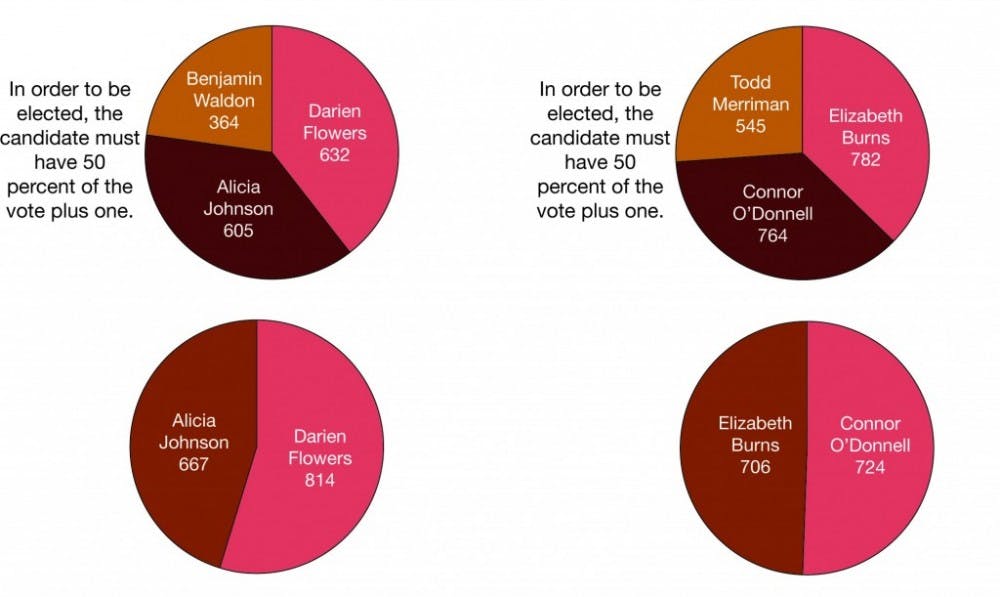Palpable tension filled the room in Moseley Center as the results of the run-off elections for executive president and vice president were on the brink of release. The candidates sat very still, clutching the hands of their friends and supporters.
And then, the moment of truth arrived. Cheers erupted for junior Darien Flowers and sophomore Connor O’Donnell, the new executive president and vice president, respectively.
The run-off executive election took place Feb. 23. This year, the increase in Student Government Association executive candidates resulted in not one, but two run-off elections. The two candidates that won the most votes during the general election paticipated in the run-off election. Candidates need 50 percent of the votes plus one more vote to win.
The heightened interest in the executive presidency and vice presidency speaks to the strength of the current executive board, O’Donnell said.
“The people who were running for executive positions that were already in SGA saw all the things that the (current) executives were doing and wanted to mirror that,” he said.Prior to the election cycle, the current executive board advocated their positions to existing members of the SGA, as well as students outside the realm of government.
“The current executives really challenged all the senators to advertise the election to their own constituents and groups of friends,” Flowers said. “I think that word-of-mouth (advertising) really increased candidates for all positions.”
Such advertising increased voter turnout as well. A total of 2,091 votes were cast in the 2012 general election, a 14 percent increase from last year, according to Jana Lynn Patterson, assistant vice president for student life and SGA adviser.
Social media outlets such as Facebook and Twitter allowed students to exchange campaign and election information quickly and easily, which bolstered support for candidates and rallied enthusiasm.
“I think Twitter is the fastest-growing social media platform that students are using,” Flowers said. “The instantaneous information that Twitter provides was able to attract students to vote.”
Student media covered the election campaigns and encouraged students to consider the platforms of each candidate. The SGA website was staffed throughout the entire election cycle, and students were prompted by SGA representatives to vote online.
“I have only heard good things about how high-tech and professional the campaigns and speeches were,” O’Donnell said. “It seemed like an actual debate and really mirrored the professionalism of the candidates and the student media.”
After a largely successful campaign cycle, Flowers and O’Donnell look forward to working with the student body and the student media to foster change in the Elon community.
“It was definitely a great experience to operate in an environment where we had access to people with the ability to send information to extremely large amounts of people,” Flowers said. “It really helped combat that sense of voter apathy that has been prevalent in elections past.”


